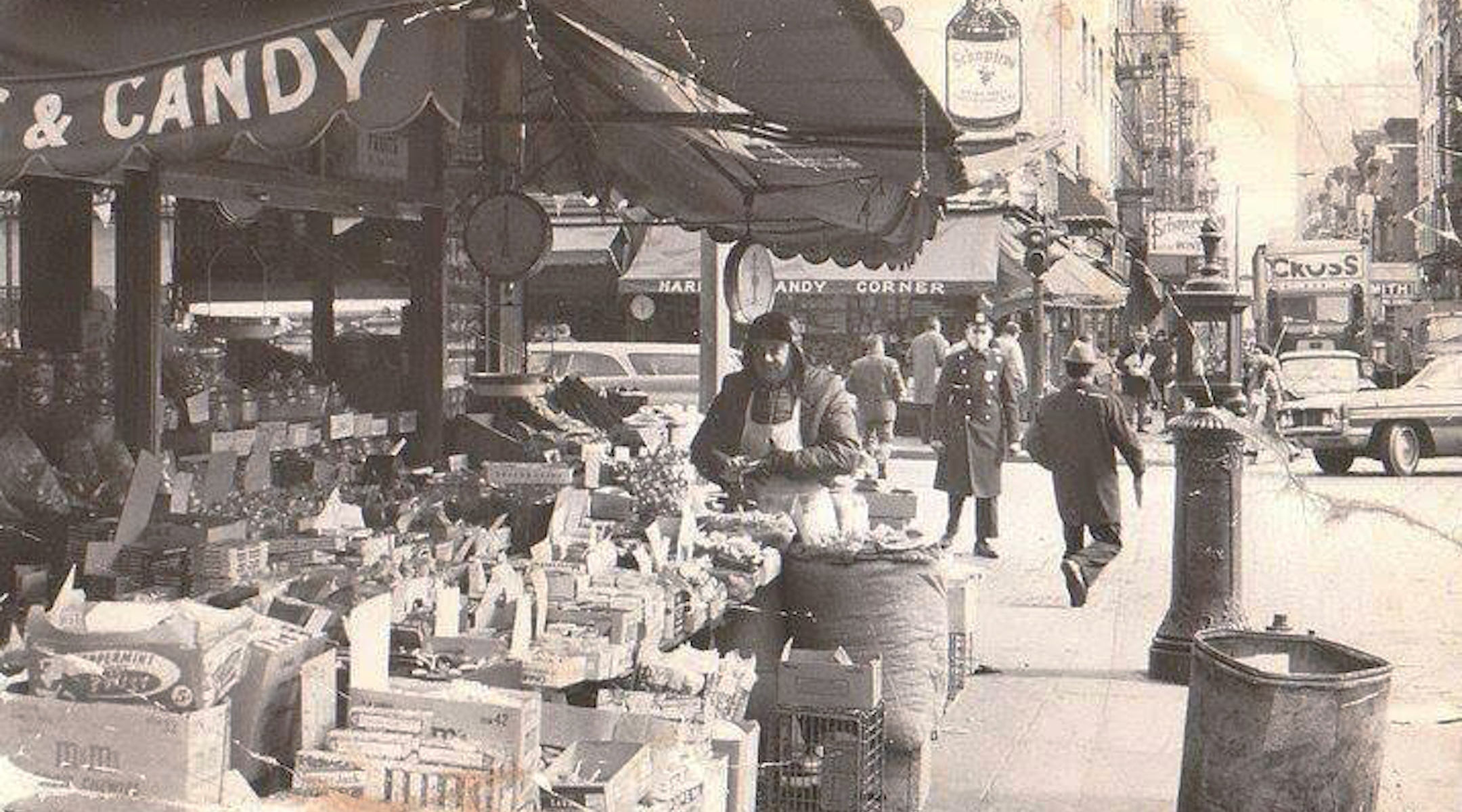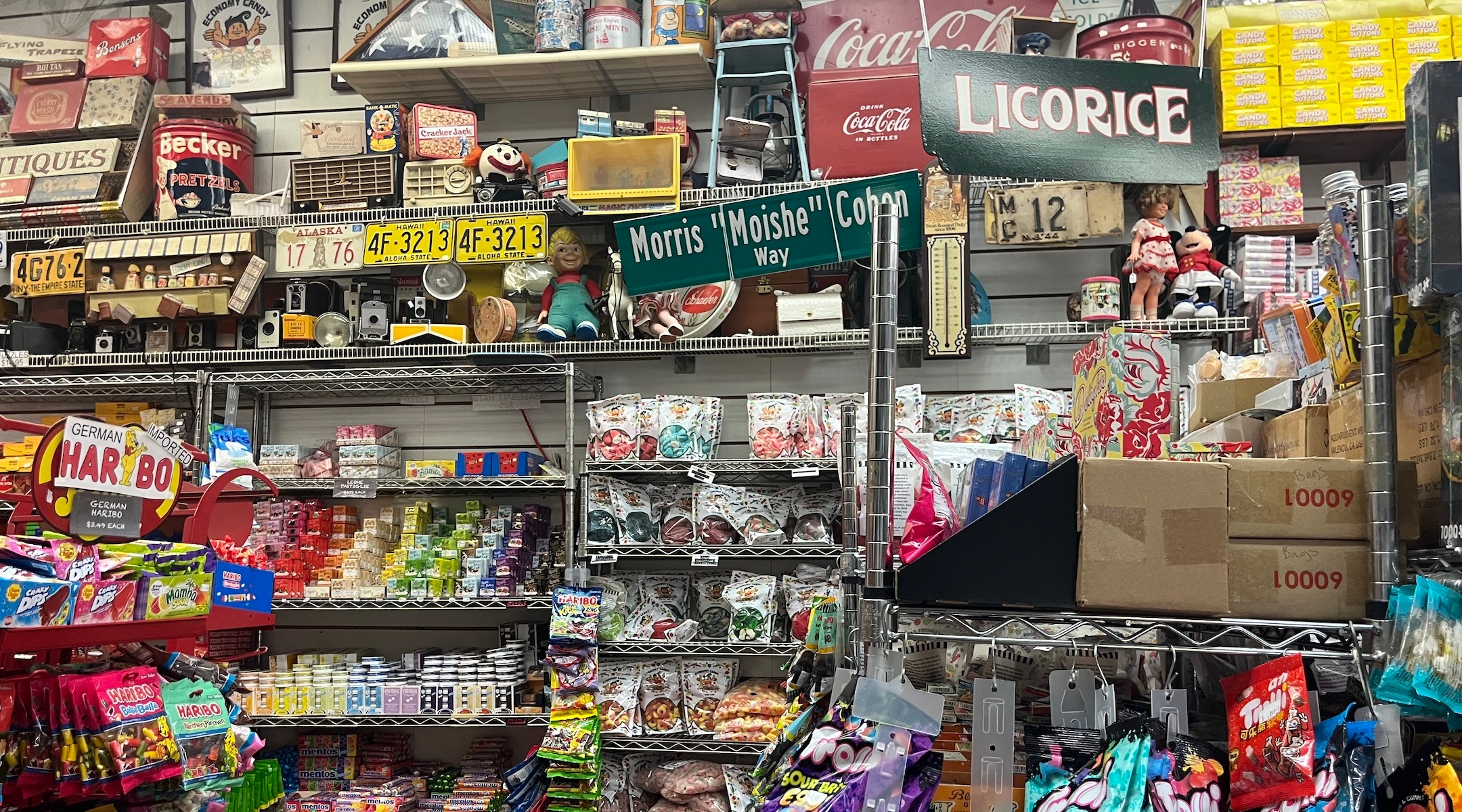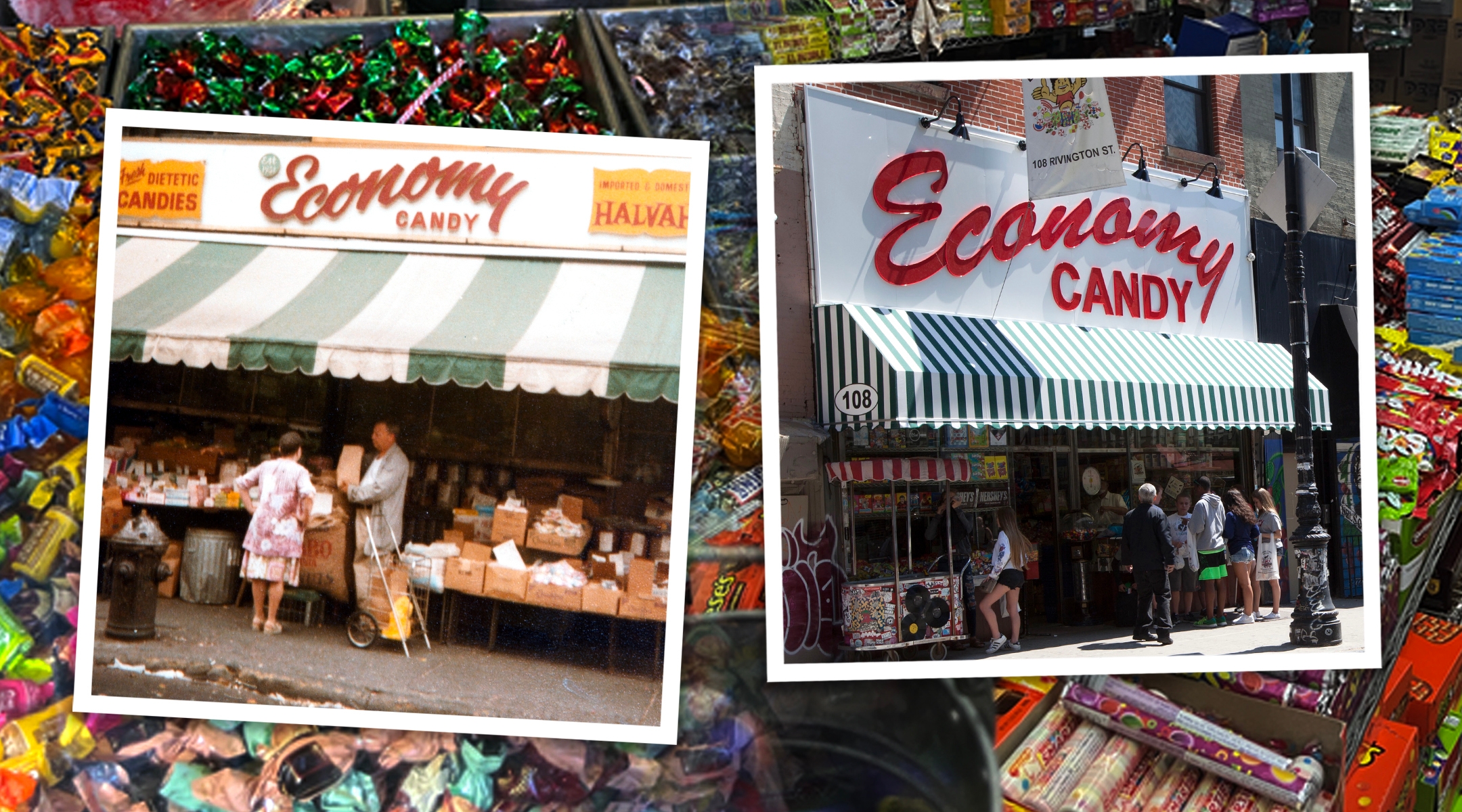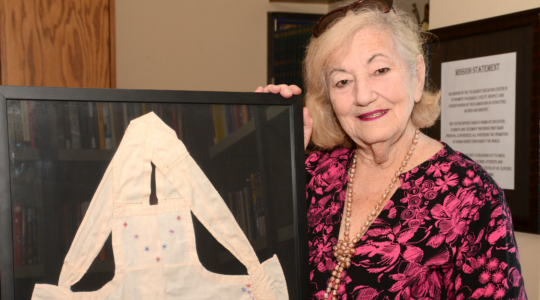(New York Jewish Week) — Stepping into Economy Candy on the Lower East Side feels like entering a time portal: There are Mary Jane caramels that were popular in the 1950s and Bazooka bubble gum packs straight out of the 1970s.
But the shop also transports candy lovers to faraway places: There are imported matcha Kit-Kats from Japan, mango lollipops from Mexico and Elite chocolate bars from Israel.
“We have over 2,000 items,” Mitchell Cohen, the third-generation owner of New York’s oldest retail candy store, told the New York Jewish Week. “We’re packed in here to about 1,000 square feet, all the way up to the ceilings.”
Founded in 1937 by Cohen’s family — Jewish immigrants from Salonika, Greece who arrived on the Lower East Side in the 1910s — Economy Candy is a remnant of an era when there were seven candy stores catering to the Jewish and other immigrants living in the neighborhood’s tenements and working to make it in New York City.
But it’s no relic: Cohen attended Wharton Business School and worked in investment banking for a decade before returning to the thriving, quintessentially New York business. Social media and TV shows like “Unwrapped” and “CBS Sunday Morning” have cemented the store’s image as a nostalgic, must-visit institution on the Lower East Side.
“We have tons of regulars — what the regulars are these days are people who came with their parents and their grandparents and are now bringing their kids and grandkids,” Cohen said. “We have people who were displaced New Yorkers, we have people who just are searching for that thing that they thought was not made anymore.”
Originally, the business was a shoe and hat repair shop; out front, Morris “Moishe” Cohen, Mitchell’s grandfather, sold candy from a pushcart.
As the Great Depression set in, business for shoes and hats slowed — but customers continued to show up for penny candy that might have brought a smile to their faces.
“We pivoted to Economy Candy and have been going strong ever since,” Cohen, 38, said.
“My dad Jerry, his sisters Bebe and Susie, my cousins and uncles and my grandmother Joan worked at the business together,” Cohen said. “Everybody was involved.”
From 1937 until the 1980s, the store was on the corner of Essex and Rivington, where Morris would arrive early every day to bring out barrels of dried fruit and nuts and set up candy on outdoor tables.
“Half the store was outside. That was part of setting up in the morning and taking it down at night,” Cohen said. “So my grandfather was known for being outside on that corner, from morning till night, rain or shine, whether it was negative 10 degrees or 110 degrees.”
Support the New York Jewish Week
Our nonprofit newsroom depends on readers like you. Make a donation now to support independent Jewish journalism in New York.
Last summer, New York City honored Morris with a street sign named Morris “Moishe” Cohen Way on the corner of Essex and Rivington. He died in 2015 at age 97.

A 1940s photo of Economy Candy in its original location on the corner of Essex and Rivington Streets. (Courtesy Economy Candy)
Throughout the mid-20th century, second generation and third generation immigrants moved out of the Lower East Side, Cohen said, and “little by little, we were the last [candy store] left.”
In the 1980s, Jerry — Mitchell’s father — took over the business with his wife Eileen, and the shop moved just a few storefronts down to its current location at 108 Rivington St. As was family tradition, they enlisted their children as early as possible.
“When I was 5 years old — maybe even younger — as soon as I could stand on a milk carton, I was doing the register and working alongside my parents. It’s really always been a family business,” Cohen said. “I grew up here working. It’s where I learned numbers and I learned math. Even if the line was down the block, my dad is making me do the change in my head.
“Believe it or not, I really felt that I learned more here that I used in the business world than vice versa,” Cohen said.
As he grew older and worked on Sundays in high school, Cohen said a nearby synagogue often tapped him to make a minyan. “I remember coming in on Sundays, and the rabbi would be waiting and said, ‘I need your son for a minyan.’ I would be there for the morning services and then I’d come back to work,” he said. “They always knew they could come find me.”
Cohen now runs the business with his wife Skye. In the decade since he took over, they have revamped the interior and exterior of the store, reorganized the shelves and sections of the store (yes, they’re organized!) and put in a new floor. They also restored the original red-and-white cursive sign.
When the pandemic shut the world down, just before the busy spring season of Passover and Easter in March 2020, “I had a thousand pounds of macaroons and a thousand chocolate Easter bunnies and a closed door,” Cohen said.
And so, just like his great-grandfather did during the Great Depression — Cohen pivoted.
“We had to shut our doors and we were just open for curbside pickup. We sold ‘mystery bags’ on the weekend and made candy care packs and holiday packs,” he said, adding that the packages are still available for Passover, Hanukkah, Christmas and Easter.
He also worked to get their inventory online, added a line of sweatshirts, T-shirts, hats, totes and stickers, established a social media presence and expanded their ability to ship nationwide. At the beginning of 2023, the store was also able to open a second location — an outpost in Chelsea Market — for the first time in its history.
“We really took that opportunity to try to expand on some projects we couldn’t do before and come back stronger and better than ever,” Cohen said. “Here we are back to higher than pre-pandemic levels in the store.”
Support the New York Jewish Week
Our nonprofit newsroom depends on readers like you. Make a donation now to support independent Jewish journalism in New York.

A miniature version of the street sign honoring the Economy Candy’s founder is proudly displayed inside, where the store’s wares are piled up to the ceiling. (Julia Gergely)
On a recent Thursday afternoon, the store is full of tourists and locals who crowd aisles spilling over with Swedish Fish, Bit-O-Honey, Twizzlers and Haribo gummy bears, as well as halva, dried fruit and nuts, homemade chocolate turtles and peanut butter cups, pickle- and jalapeño-flavored items, freeze-dried Skittles and more.
Parents are buying packs of Topps baseball cards and bubblegum sticks while their kids are browsing the latest TikTok trend: Mega Sour Fizz Bombs. A group of high school boys stop by at the end of a field trip to the Lower East Side.
“Please never close,” one woman gushes to Cohen. “I can’t live without these.” Her cart is full of Atkinson’s Long Boys Coconut Candy.
Just like his father and his father before him, Cohen plans to pass the family business on: His daughter, Scarlett, was born at the end of last year.
“The fourth-generation Cohen will be working here at Economy Candy soon. Once she gets her six month shots we’ll put her to work,” he joked. “We hope to have her around so she can meet all the customers and all the fans of Economy Candy and really keep that alive.”





